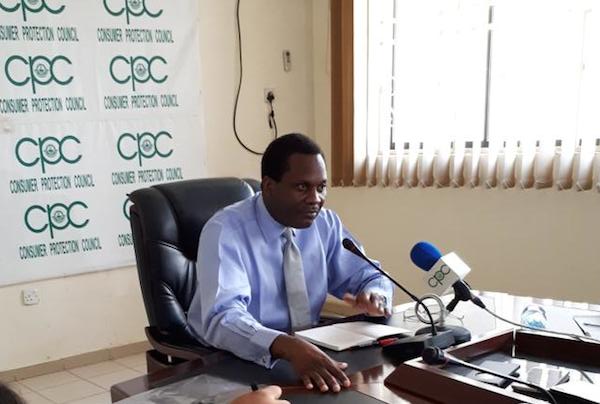The Director General of Consumer Protection Council (CPC), Mr. Babatunde Irukera, weekend gave an indication in Lagos that the Council is keeping an eye on Facebook over its data privacy management of Nigerians on its platform.
In an exclusive interview with Business Hilights on the sidelines of a workshop organized by Electronic Payments Providers Association of Nigeria (E-PPAN) with theme: ‘Promoting Digital Literacy To Enhance Public Confidence,’ he said even though we are not currently working on a template to probe data breaches by Facebook on Nigerians, “The subject of the issues that Facebook is currently dealing with in Europe and America is just very much here in Nigeria because very good number of people in Nigeria also use Facebook and the same concerns people in the United States or Europe have, we also have the same concerns here too with respect to whether their privacy or their private information is sufficiently protected”.
“And so, we are watching what is going on in the regulatory space in those environments and we are really accessing that place with ours based on our existing laws and regulation. And so, I suppose that the point that I am making is that the same scrutiny that is happening in those places would also happen here. Now, whether that will translate to potential public and open investigation issues, that we do not know yet.
Irukera was however quick to assure Nigerian Facebook users that CPC will be proactive in confirmed situations of data privacy breach by any social media platform.
 On the strategic roles of CPC in tracking consumer protection within the e-payment space, the Director General averred that “whereas the right to participate in commerce as far as we are concerned from a consumer stand point is actually constitutional, he argued that “Sometime financial inclusion is a way to make sure the citizens really have the full access that the constitution provides”.
On the strategic roles of CPC in tracking consumer protection within the e-payment space, the Director General averred that “whereas the right to participate in commerce as far as we are concerned from a consumer stand point is actually constitutional, he argued that “Sometime financial inclusion is a way to make sure the citizens really have the full access that the constitution provides”.
“And payment systems are very vital to this because not everybody is banked and one way of even those who are banked being able to conduct their transaction. For instance is the bridge between the bank and the service provider or goods provider and the customer of the bank, potentially could be a buyer and as such is very important that their role is sufficiently captured in the value chain and also their responsibility.
“One of the most important things that the CPC considers with respect to the payment system is that they need to be very clear service level agreement between payment systems and the companies that they are representing the reason is that consumers don’t have choice in which payment system they choose and so the glitches that consumers experience in the transaction process should to some extent be addressed in a service level agreement where there are some responsibility for some things that may go wrong in that process.
On how the interests of consumers will be protected on issues of cyber security and online fraud, Irukera observed that “For one thing, the service level agreement that is proposed by the consumer protection council should address that in the sense that we know where exactly responsibility lies when there is a problem”.
“So for instance, if there is already an agreement between all the operators whether it is the bank or the vendor or the payment system about who carries the bag or who would have the responsibility or liability when there is a delay then obviously the transaction can still go on and they can go to the settlement platform by themselves and resolve that while the consumer’s business continues.
He added that “With respect to security and protection of the privacy of the consumers, I think that it is also something that should be questioned in the service level agreement because each of them have information and every piece in the value chain gets the information of the consumer, whether it is a privacy information with respect to their purchasing references or their banking or other financial details, and to the extent that any of this party; the payment system, the bank or the seller or whoever it is gets to interact with this information.
CPC boss stressed that “There must be a very clear provision as how those materials will be handled and where liability will be when it is compromised”.









